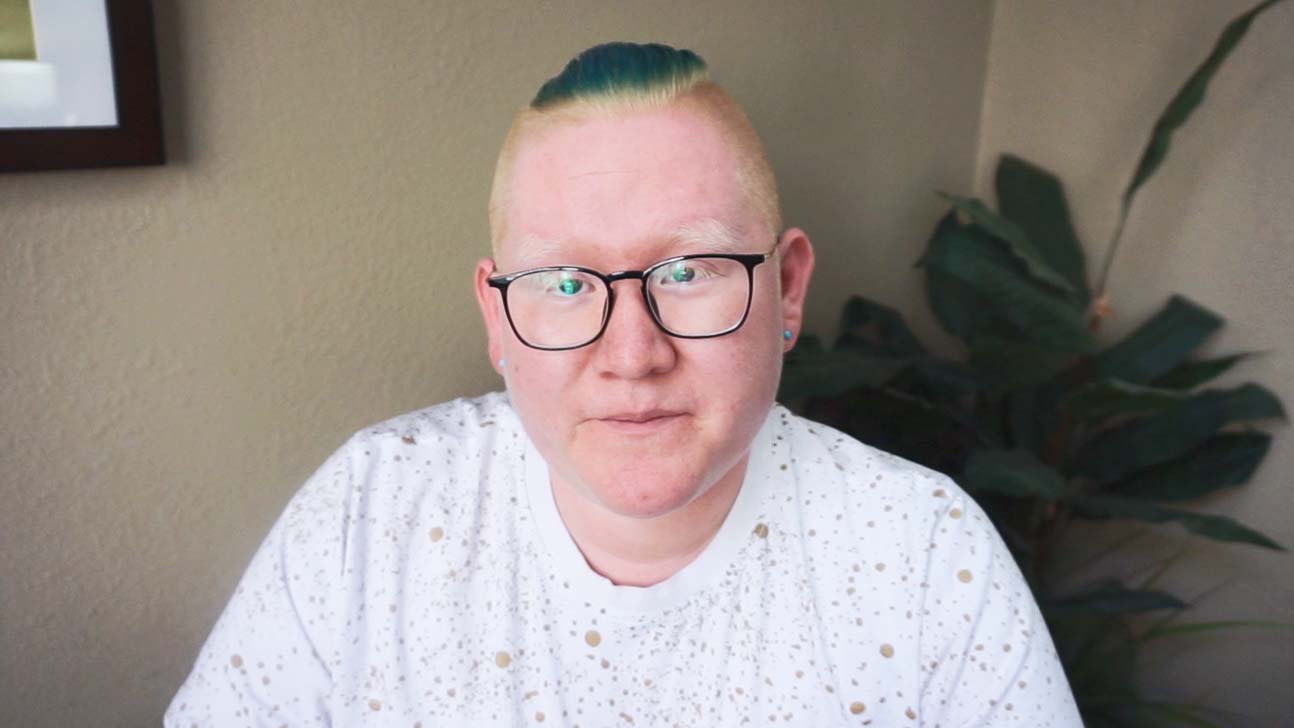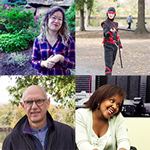Faces Behind the Screen: JD Dalton
Quick Links

“I was born with albinism, which is what caused my visual impairment. I grew up having to learn how to navigate the world with low vision, while also being aware that my skin color was different from the rest of my biological family.
Growing up in an indigenous community was hard. Not only was my low vision a challenge, but it was also hard to accept my skin color. Being taught about the history of Indigenous communities with white Europeans, made me struggle with accepting the color of my own skin.
One thing I find is that when we are in groups we only really emphasize one label at a time. In reality, we are many labels and recognizing that we come from unique experiences, will help us to consider the diversity that surrounds us.
Disabled people of color or disabled LGBTQ individuals are going to have a different experience than those who are not disabled. Queer people of color are going to have a different experience than the white queer community.
I feel it is important to embrace all of our labels, rather than be forced to only carry one at a time.

I was first introduced to the YouTube community through music. I followed pianists like Kyle Landry and Sherry Kim and they were my inspiration for playing.
It wasn’t until I started contemplating my sexual orientation that I discovered the vlogging community and coming out videos. I wanted that same sense of community and resource to those living with disabilities.
So I started talking about my experiences living with albinism and low vision.
I’m almost positive that when people hear the phrase ‘visual impairment’ they think of someone who cannot see completely.
A majority of the blind community are people with low vision. We can still see a little, or most of the detail of what we’re looking at, it just depends on environmental conditions. I am visually impaired, but I am also a painter, and I coach soccer.

If you also have a visual impairment, know that learning how to advocate for yourself is the most important key to achieving your goals. There will be more obstacles to figure out, but if you are persistent and unafraid of the label of being “visually impaired”, you can show others what you are capable of achieving.
To those who are not disabled, never assume what a disabled person’s limits are.
Also, the whole ‘you are an inspiration’ speech gets old after a while. We are normal people who happen to live our lives with some slight adaptation. Persons with disabilities are well capable of advocating for ourselves.
If you would like to be helpful, ask to offer assistance, don’t immediately take over what we are doing. And in my personal opinion, questions are how you learn! When the appropriate time comes to ask questions regarding accommodations and accessibility don’t hold back!”
Faces Behind the Screen is a storytelling project focusing on communities that benefit from a more accessible web.



